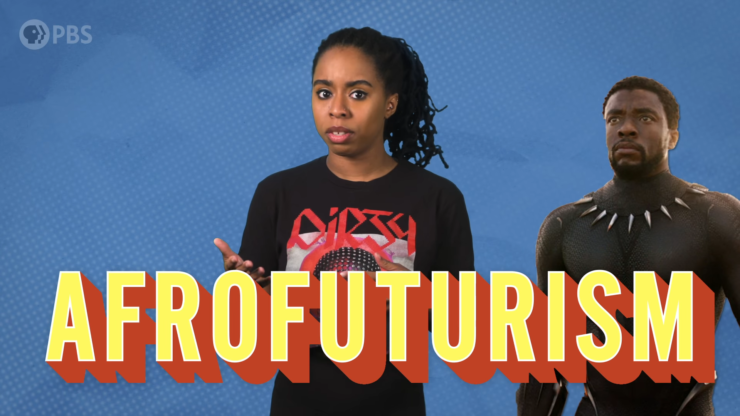As we head into Day ?? of social distancing, we find ourselves faced with plenty of options for keeping ourselves busy under this new normal. Some people are releasing their stories for fans to read for free, while others are finding self-isolation remarkably conducive to making progress on their blockbuster fantasy series. Still others are using their platforms for public health PSAs or taking the time to catch up their TBW lists.
We submit another option: brushing up on your literary history. On this week’s episode of PBS’ It’s Lit!, co-host Princess Weekes is teaching viewers all about Afrofuturism.
Weekes begins by explaining that 2018 was a huge year for Afrofuturism. That was the year Black Panther, Tomi Adeyemi’s Children of Blood and Bone, and Janelle Monáe’s concept album Dirty Computer all came out, solidifying the movement’s entry into the mainstream.
“But Afrofuturism doesn’t just mean science fiction plus Africa; it’s a bit more nuanced than that,” she continues. “Afrofuturism addresses the cultural issues and concerns of the African diaspora through technoculture and science fiction, which is what Black Panther does. But you can’t just wrap a lightsaber in kente cloth and call it Afrofuturism (unless you’re John Boyega. He can do it). Afrofuturism, like rap, reggae, jazz, blues, and all the music that has come out of the black experience, is about creating art out of pain, strength, loss, and successes. It is fundamentally rooted in being denied a full history and looking to the future to correct that.”
From Mark Dery’s 1994 essay, “Black to the Future,” to the work of sociologist Alondra Nelson, to the books of Octavia E. Butler, N.K. Jemisin, Nnedi Okorafor, Rivers Solomon, and more, Weekes jumps backwards and forwards in time to give fans what is essentially an Afrofuturism 101 class in just under 10 minutes. Check out the video above!










